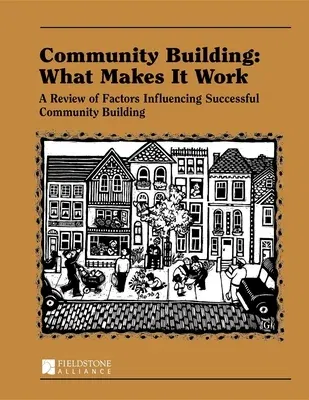This practical guide shows you what really does (and doesn't) contribute
to community building success. It reveals 28 keys to help you build
community more effectively and efficiently. You won't find another
single report that pulls out common lessons from across community
building initiatives about what works. You can use this report to find
out what community characteristics contribute to successful community
building, make sure key processes such as communications and technical
assistance are in place, determine if community leaders or organizers
have essential qualities such as a relationship of trust and
flexibility, and evaluate the likely success of a proposed project or
get a struggling effort back on track. Examples, definitions, and a
detailed bibliography make this report even more valuable. Wilder
Research Center scoured the literature, contacted resource centers, and
spoke with community development experts across the country. The result
is concrete, understandable research based on real-life experiences. The
28 factors in this report are grouped by: 1) characteristics of the
community, 2) characteristics of the community building process, and 3)
characteristics of community building organizers. Detailed descriptions
and case examples of how each factor plays out are followed by practical
questions you can use to assess your work. In addition to the factors,
you also get working definitions for community, community building, and
many other terms; a list of resources and contacts in the field; an
explanation of how the research was done; and a complete bibliography of
all the studies used in this report. Now you can save time looking for
best-practice information. With this concise report, you've got the
tools to help your community building work succeed!

